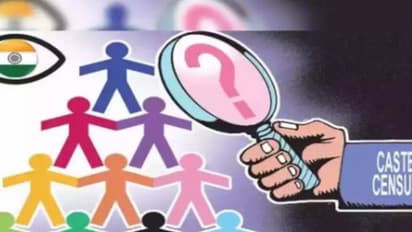Karnataka caste census sparks row: Congress divided, key communities call report 'unscientific'

Synopsis
A leaked caste census recommending increased OBC and Muslim quotas has triggered backlash in Karnataka, dividing the Congress. Critics call the report 'unscientific', ahead of a crucial cabinet meet on April 17 to discuss its fate.
Bengaluru: A leaked caste census report has ignited a political storm in Karnataka, with sharp divisions emerging within the ruling Congress party and among influential caste groups.
The report, formally known as the Socioeconomic and Educational Survey, recommends a significant overhaul of the state's reservation structure, triggering outrage from some senior Congress leaders and community representatives who have branded the findings 'unscientific' and demanded it be scrapped, reports The Times of India.
Also read: Karnataka caste census report bats for hiking OBC quota from 32% to 51%
The report, submitted to the state cabinet on Friday, proposes raising the total reservation in Karnataka from the current 50% to 73.5%, including an increase in quotas for OBCs and Muslims. The development comes just ahead of a special cabinet meeting on April 17 called by Chief Minister Siddaramaiah to discuss the report. Here are the key recommendations of the report:
- OBC reservation: Increase from 32% to 51%
- Muslim reservation: Double from 4% to 8% (Muslims are categorized under OBCs)
- Scheduled Castes: Retain at 15%
- Scheduled Tribes: Retain at 7.5%
- Total state reservation post-revision: 73.5%, exceeding the 50% cap set by the Supreme Court
Breakdown by Community:
The report classifies communities into specific reservation categories and suggests allocations based on estimated populations:
- Category III(A) (Vokkaligas + 2 others):
- Estimated population: 73 lakh
- Suggested quota: 7%
- Category III(B) (Veerashaiva-Lingayats + 5 others):
- Estimated population: 81.3 lakh
- Suggested quota: 8%
Despite these figures, the report does not disclose the exact population percentages of individual caste groups like Vokkaligas and Lingayats, which has become a major point of contention, adds TOI.
The Political Fallout:
Several Congress leaders from dominant communities have expressed serious doubts over the credibility and methodology of the survey.
Shamanur Shivashankarappa, senior Congress leader and President of the All-India Veerashaiva Mahasabha, dismissed the report as 'unscientific', claiming the survey team never visited his residence to collect data.
Industries Minister MB Patil, a Lingayat leader, hinted at data fragmentation, pointing out that many sub-castes within Lingayats may have registered under different categories to benefit from existing 2A reservations. He said that if these sub-groups are included, Lingayats’ population would cross 1 crore.
DK Shivakumar, Deputy CM and KPCC President, remained cautious, “Everyone is trying to safeguard their communities. I will not stop them—it’s their democratic right. The cabinet will discuss this on April 17. We will not rush into it.”
Also read: Bengaluru: Kempegowda Airport drops Hindi from display boards, triggers online debate
Historical context & political stakes:
This is not the first attempt at caste-based documentation in Karnataka. The Chenappa Reddy Commission report (1990) estimated Lingayats at 19% and Vokkaligas at 17%. Based on that, the Deve Gowda-led government had granted 4% reservation to Muslims—a decision that now appears to have been revised significantly. The new survey, reportedly conducted in 2015, pegs:
Muslims at 12.6% of the population
Scheduled Castes as the largest group, with around 1.1 crore people and 108 sub-castes
Opposition reacts to caste census report
The BJP has seized the opportunity to accuse the Congress of minority appeasement, questioning the basis of the figures.
“This report reeks of the CM dictating numbers to the census author H Kantharaju. If not, there is no way Muslims are declared the ‘majority community’ in the state,” said opposition leader R Ashoka.
All cabinet ministers received the full report on Sunday to study ahead of Wednesday’s meeting. The CM has assured that legislators will get an opportunity to debate the report in the Assembly, signaling a deliberate approach in dealing with the politically sensitive data.
As Karnataka gears up for key policy decisions, the caste census has laid bare the deep fault lines in the state's social and political fabric—where every number could reshape power.
Also read: Karnataka horror: Children burned with incense sticks in deadly fever 'treatment' ritual
Stay updated with the Breaking News Today and Latest News from across India and around the world. Get real-time updates, in-depth analysis, and comprehensive coverage of India News, World News, Indian Defence News, Kerala News, and Karnataka News. From politics to current affairs, follow every major story as it unfolds. Download the Asianet News Official App from the Android Play Store and iPhone App Store for accurate and timely news updates anytime, anywhere.